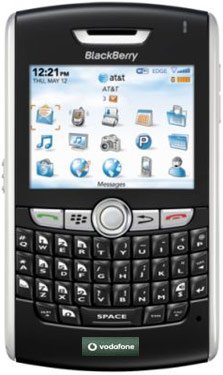Required:
- Intel or AMD processor which supports hardware virtualization
- OSX86 iso, Get it off of torrents if you don’t have one.
- VirtualBox, Can be Downloaded from Here.
- Windows 7, Vista or XP installed as host operating system.
Steps:
Step 1: Launch VirtualBox you Downloaded previously, Then click on "New" to create a new Virtual Machine in VirtualBox
Step 2: Give a name for your Virtual Machine, for Example "OSX", Choose "Mac OS X Server" from the dropdown menu and Click on "Next"
Step 3: Now, Assign your VM some Ram, In the tutorial here we made it "1500MB"
Step 4: You have to create a new Hard Disk for your VM, it should be about 20GB. If you choose Dynamic, it will expand on use and Static will be a fixed 20GB no matter how much data is actually in it.
Step 5: Click on "Settings" then "System" from the left panel, and unCheck the option "Enable EFI (special OSes only)"
Step 6: Now from the left panel, Select "Storage" then on "Empty", Now click on the folder with the green arrow on the right
Step 7: In this Step, Click on "Add" at the top, then add the OSX86 iso you already downloaded, Now highlight it and click Select at the bottom. Then click OK and start
Step 8: As it starts up, click inside the window and hit F8. Then at the boot: prompt type
–v so you can see what exactly went wrong if something does go wrong. All the services will run and eventually you should come to the language screen. Choose your language and then click next. If you are unable to move your mouse around then hit Right-Ctrl + I. Click Continue and Agree, and then start Disk Utility found in Utilities menu at the top.Step 9: In this window, click on "20GB VBOX HARDDISK", then click on "Erase", In the name box write what you want then Click on"Erase" at the bottom. Once done, quit the Disk Utility so that you return back to the installer.
Step 10: Now Click on "OSX" Partition and press on "Continue"
Step 11: Now Click on "Customize" at the left bottom and check the following:
For AMD Users check,
Any Updates included at the top.
Drop down Kernels and choose Legacy kernel.
AMD option below System support.
For Intel Users,
Any Updates included at the top.
Drop down bootloaders and check the newest chameleon.
Drop down Kernels and choose Legacy kernel.
Then click Next done and Install. To speed up the process you can click Skip when the disc check pops up.
Step 12: As soon as it says installation finished and starts counting down to restart press the Right-Ctrl and then click on Devices at the top and hit CD/DVD Devices and click Unmount CD/DVD Device. Then click Machine and Reset then click reset at the prompt. Next you’ll see the Chameleon loader and then OSX will begin to boot.
Meh! After rebooting you should now be running Mac OS X Snow Leopard Working under Windows 7 / Vista / XP [via Lifehacker, Redmondpie, Tek411]

















0 comments:
Post a Comment